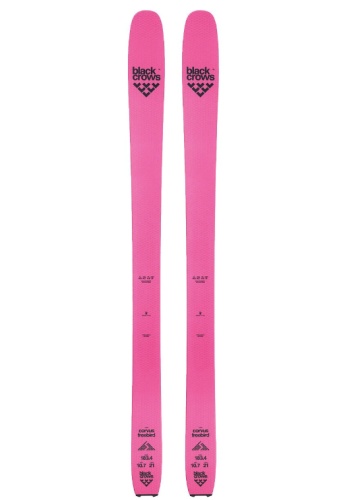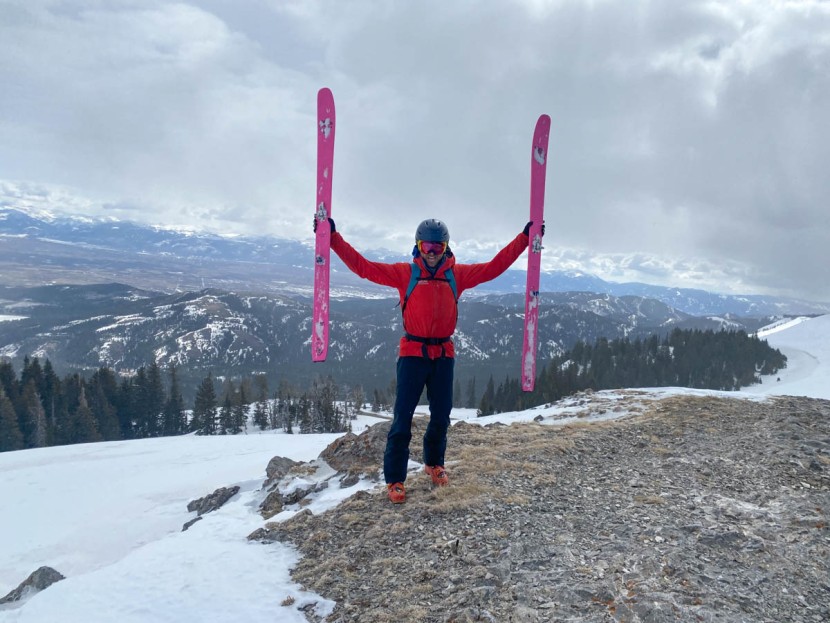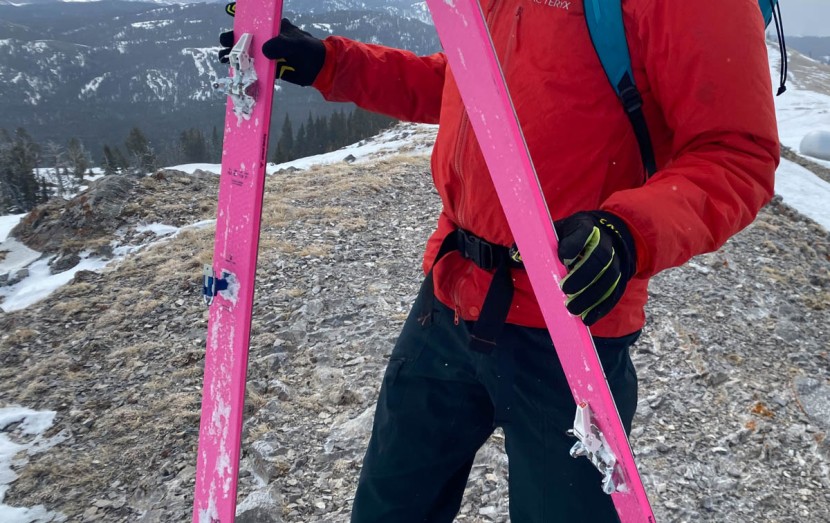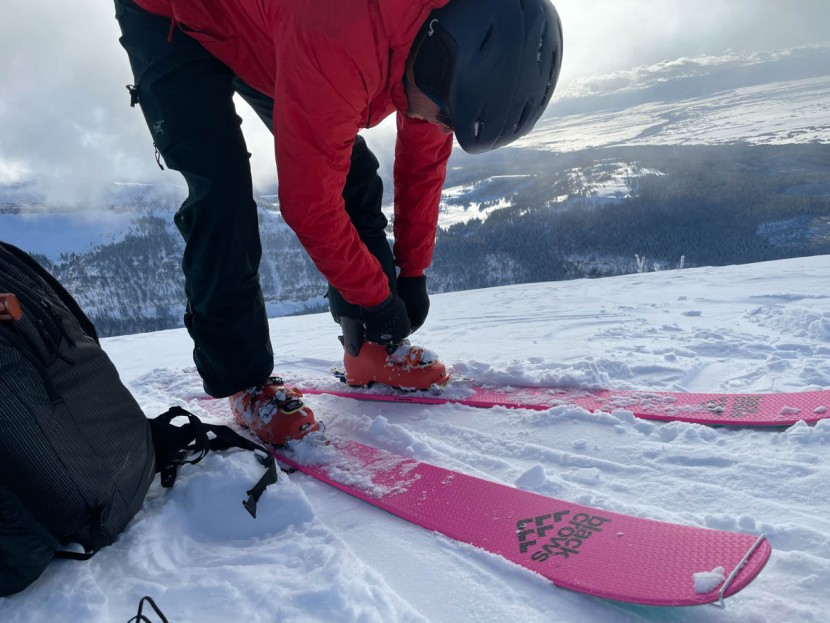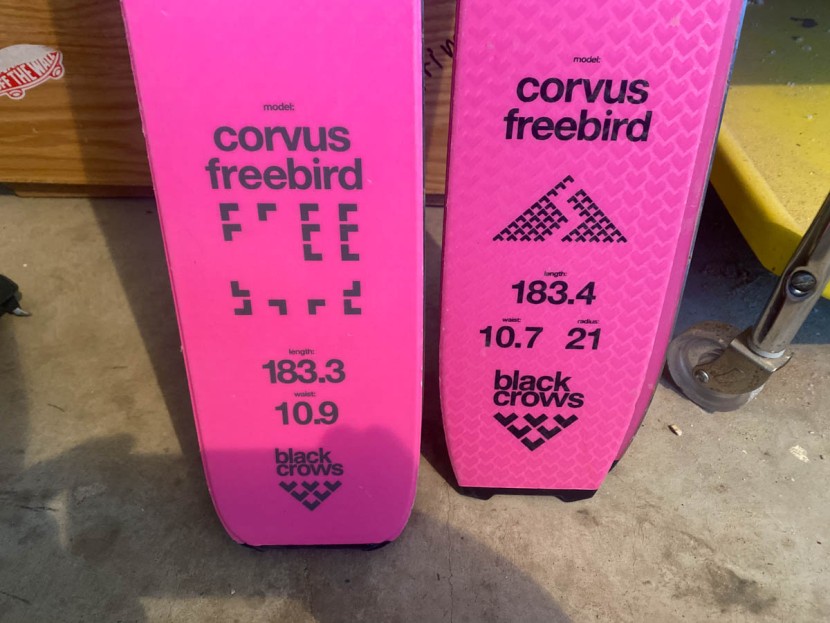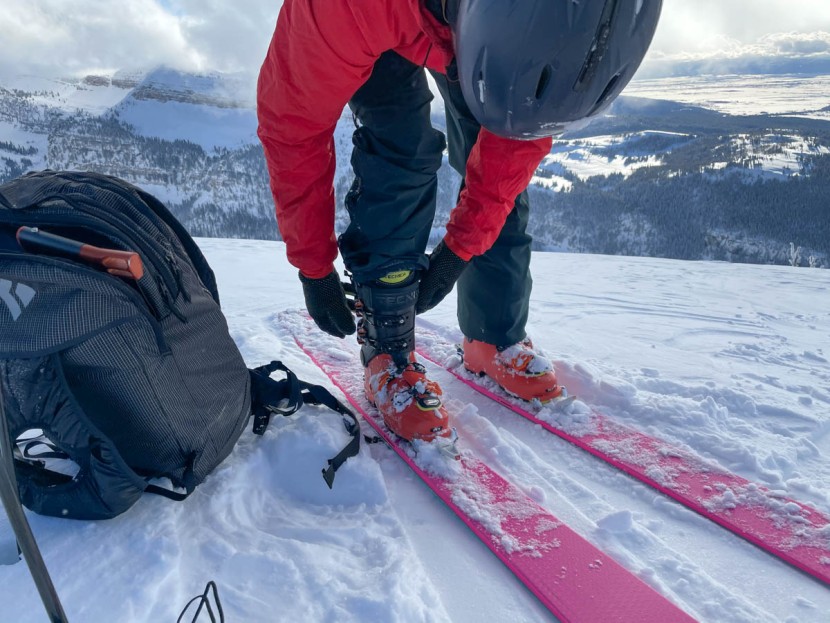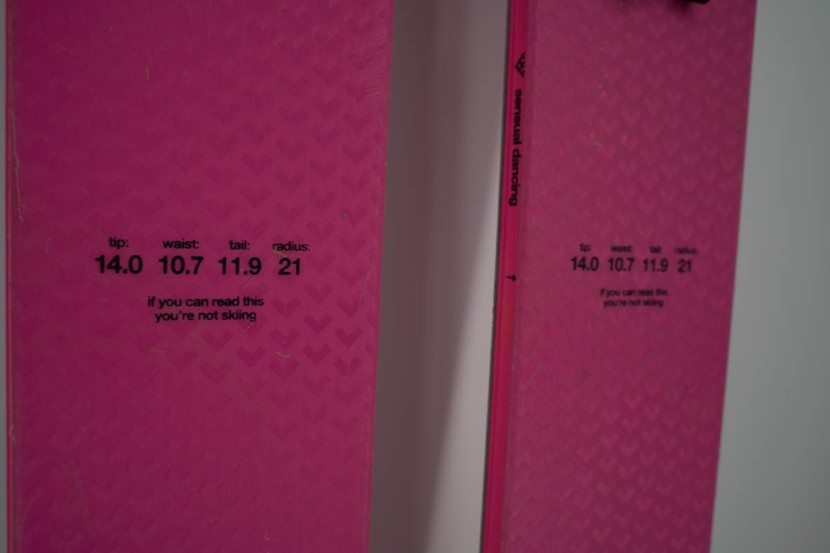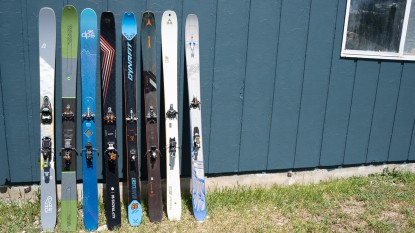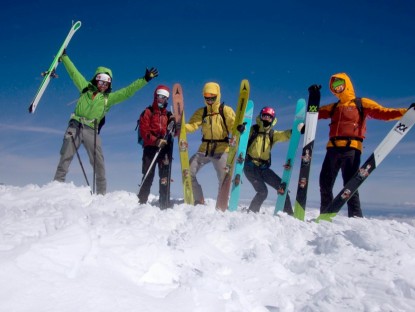Black Crows Corvus Freebird Review
Our Verdict
Compare to Similar Products
 This Product
Black Crows Corvus Freebird | |||||
|---|---|---|---|---|---|
| Awards | Best Overall Backcountry Skis | Optimized for Downhill Performance | Best Bang for the Buck | A Realistic Backcountry Ski | |
| Price | $1,049 at Evo Compare at 2 sellers | $719.96 at Amazon Compare at 3 sellers | $639.96 at Evo Compare at 2 sellers | $800 List | $900 List $599.97 at Amazon |
Overall Score  |
|||||
| Star Rating | |||||
| Bottom Line | Amazing, demanding downhill performance with a significant (comparably) weight penalty; pay close attention while skiing these | This relatively wide all-season ski is one of our favorites and great for all-around human-powered use | Heavier skis that offer meaningful performance on the downhill, ideal for newer backcountry skiers or for experts who don't mind trading a bit of efficiency for a bit more fun | Reasonably affordable and great for a wide range of human-powered skiing, these are your backcountry "quiver-of-one" | If you have a truly wide-ranging ski habit and have realistic expectations of what you will find out in the mountains, consider these skis very closely |
| Rating Categories | Black Crows Corvus... | Blizzard Zero G 105 | Salomon QST Echo 106 | K2 Wayback 106 | Atomic Backland 95 |
| Weight (25%) | |||||
| Firm Snow (20%) | |||||
| Powder (20%) | |||||
| Crud and Poor Snow (20%) | |||||
| Stability at Speed (15%) | |||||
| Specifications | Black Crows Corvus... | Blizzard Zero G 105 | Salomon QST Echo 106 | K2 Wayback 106 | Atomic Backland 95 |
| Measured Weight Per Ski (g) | 1932 | 1513 | 1779 | 1436 | 1422.5 |
| Measured Length Tested (cm) | 183 | 178 | 180 | 179 | 175 |
| Measured Waist Width (mm) | 107 | 105 | 105 | 105 | 94 |
| Weight Per Surface Area Ratio (g/cm²) | 0.86 | 0.72 | 0.8 | 0.68 | 0.73 |
| Measured Weight Per Pair (g) | 3863 | 3025 | 3557 | 2872 | 2845 |
| Measured Weight Per Pair (lbs) | 8.5 | 6.7 | 7.8 | 6.3 | 6.3 |
| Manufacturer Claimed Length (cm) | 183 | 180 | 181 | 179 | 177 |
| Available Lengths (cm) | 176, 183, 188 | 164, 172, 180, 188 | 157, 165, 173, 181, 189 | 165, 172, 179, 186 | 161 ,169, 177, 185 |
| Measured Dimensions, Tip/Center/Tail (mm) | 142/107/118 | 133/104/118 | 140/105/125 | 131/105/120 | 126/94/114 |
| Manufacturer Claimed Dimensions (mm) | 140/107/119 | 133/105/119 | 136/106/126 | 132/106/121 | 128/95/116 |
| Turn Radius (m) | 21 | 23 | 19 | 22.3 | 18 |
| Construction Type | Sandwich | Sandwich | Sandwich | Semi-Cap | Semi-Cap |
| Core Material | Poplar | Paulownia | Poplar, Caruba | Paulownia | Poplar |
| Rocker/Camber Profile | Tip and tail rocker, camber underfoot | Tip and tail rocker | Tip and tail rocker, camber underfoot | Tip and tail rocker, flat underfoot | Tip and tail rocker, camber underfoot |
Our Analysis and Test Results
Big guns! Among “touring skis”, despite what other reviews might suggest, these are as heavy as you should be considering. The Black Crows Corvus Freebird is almost twice the weight of our lightest tested skis, and more than twice the weight of skis our testers use on specialized missions. It's funny; other "backcountry" ski reviews mention just how light the Corvus Freebird is, but then go on to compare it to resort alpine skis and to refer to testing performed inbounds (we have to credit Black Crows inc here. They are direct and honest about the weight point of these skis. It is third party reviewers that are conflating the matter). The Corvus Freebird is light, as compared to resort skis. Here, we're comparing them to skis for human-powered riding. Compared to what else is on the market in this category, these are super heavy touring skis or light resort skis. Sure, there is a place on the market (and maybe in your quiver) for skis that bridge the gap between resort and backcountry, but they will be heavy for touring and ill-suited for either application. This is a typical compromise piece of equipment, sitting on the fence separating different worlds. Read on for the summary of our largely favorable (once we adjusted to and allowed for the additional weight) experiences.
Weight
1932 grams for a backcountry ski is heavy. With options on the market that are under 1000g, it is difficult to justify lugging these up giant mountains with your hard-earned calories and muscles. The only justification is downhill performance, but lighter skis keep performing better and better.
Most other backcountry skis we have recently tested are at least a little lighter than the Corvus Freebird. Years ago in our ski testing, we reviewed a few skis even heavier than these. 1900-gram skis a decade ago was around average for human-powered skiing. But technology just keeps improving, and skis get lighter while maintaining reasonable performance. Of course, weight enhances downhill performance up to a point. All else equal, heavier skis will go downhill better than lighter skis, and this ski is no exception.
Firm Snow
At high speeds, firm snow performance is more of a stability performance issue, which we discuss later on. The Corvus Freebird's stability advantages transfer just fine to fast and firm. Their mass and torsional rigidity make for good hard snow carving capability. At lower speeds, usually on steeper and higher consequence terrain, the criteria for hard snow performance changes a little bit. Stability then is less important than absolute edge hold and relative tip-to-tail edge hold. Wide skis require more force to grab hard snow. The Corvus Freebird is relatively wide and struggles to hold on the hard steeps as well as narrower skis. The good news is that the tip-to-tail edge grip distribution is perfectly balanced. Tip nor tail seems to grab unnecessarily, and the forces are distributed evenly underfoot.
We pretty deeply discount hard and fast low-angle backcountry ski performance. These conditions and terrain setup just aren't that common in the wild. Carving at high speeds on rock hard snow is more of a resort ski consideration. Nonetheless, these skis do pretty well in that context, especially considering their width. Of course, resort carving skis will beat the pants off the Corvus Freebird, but the torsional rigidity and mass best the performance of most of the backcountry skis we've assessed.
We look more closely at steep and firm ski performance in this review. This is actually a very common backcountry skiing situation, and one that is high consequence; you need your backcountry skis to grab predictably and reliably in slow, technical, steep, icy skiing. In these contexts, the weight and width of the Corvus Freebird are a liability. When one is conditioned to methodical steep skiing, lighter skis come around easier. To a point, of course. Our test team has found that the sweet spot for weight for steep and hard skiing is something below the weight of the Black Crows Corvus Freebird. The same can be said for ski width. Steep and firm riding rewards a sweet spot of width, usually around 90mm. At 107mm, the Corvus Freebird takes a lot of leverage to get gripping on ice. We'd go with stiff, light skis around 90mm underfoot if we were choosing skis for just steep icy snow.
Powder
In so many ways, powder skiing is what we live for. Even a dedicated backcountry skier might spend an entire season chasing a few thousand vertical feet of perfect deep powder skiing on one or two days. Because it is so fun, we highly prioritize powder skiing performance. It isn't that common, though, and a very wide range of skis and ski design considerations make for excellent powder performance. High powder performance is relatively easy to achieve, technique-wise and in terms of equipment. All modern skis of "normal" dimensions ski powder very, very well. That being said, there are subtle differences. The Black Crows Corvus Freebird are definitely very floaty in powder and like to go really fast in the softest of conditions. It is more difficult to slow things down and ride shorter radius turns.
The best powder skis we test float high in high speed turns and pop in all three dimensions in slower, shorter-radius turns. The Corvus Freebird excels in the former but requires more work in the latter.
Crud/Poor Snow
Like with stability, poor snow performance is enhanced by mass. Heavier skis bust through the crud better. Also, wide skis are less likely to get grabbed, deflected, or thrown around by tough snow conditions. The Black Crows Corvus Freebird, for these reasons, are very high-scoring poor snow performers. In breakable crust, correcting for differences in individual technique, these push further into the spectrum of poor snow before requiring reversion to survival skiing tactics. The same can be said of sloppy "mashed potatoes" type snow, though our team found that in the most difficult of wet snow, the Corvus's length, weight, and width is overwhelmed in low-speed survival slop snow turns. When you really have to slow things down, smaller and lighter skis (to a point) are easier to maneuver.
No skis, overall, ride tough stuff as well as the Corvus Freebird. Weight and width are on the Corvus's side. Smaller skis, even those that aren't that much smaller or lighter, get pushed around. The Corvus Freebird's construction helps the size and mass of the ski to do its job. The round and gentle longitudinal flex pops up out of the tough stuff, while rocker geometry helps further.
Stability at Speed
Of the major performance attributes, stability at speed is most inverse to weight. Mass literally helps stabilize your speed. Of course, there are other attributes that enhance stability, but weight is right in the mix. As heavy skis (and skis that are very well made, with excellent dimensions and careful attention to materials and assembly), the Black Crows Corvus Freebird are very stable at speed. These skis prefer high-speed riding and track through tough stuff and smooth conditions almost equally as well. Of course, resort skis will be the most stable, but for touring-specific sticks, the Black Crows are very stable. On wide-open Teton powder and big Sierra corn faces alike, the mass and long turning radius of the Corvus Freebird will inspire confidence underfoot. In the original version, we recommended you “size them long to get the full benefit of their stability”, but we no longer recommend this with the latest version. Size them as you would any other skis, if not a little shorter.
No skis we tested really compared to the stability of the Corvus, especially when compared across varied snow conditions.
Should You Buy the Black Crows Corvus Freebird?
Shop carefully with this one. This prominent pink product seems to be everywhere. Is that, though, a function of who the skis are best for, or just of really good marketing? The weight and dimensions make this a great ski for expert backcountry skiers (who are much, much better skiers than expert resort skiers) chasing serious and soft snow.
What Other Backcountry Skis Should You Consider?
In this weight class, we are really digging the Elan Ripstick 106. It is both more predictable and more forgiving than the Black Crows Corvus Freebird. If you want the damp riding experience that Black Crows are known for, our Best Buy K2 Wayback 106 is great, less expensive, and more forgiving of lesser technique.


